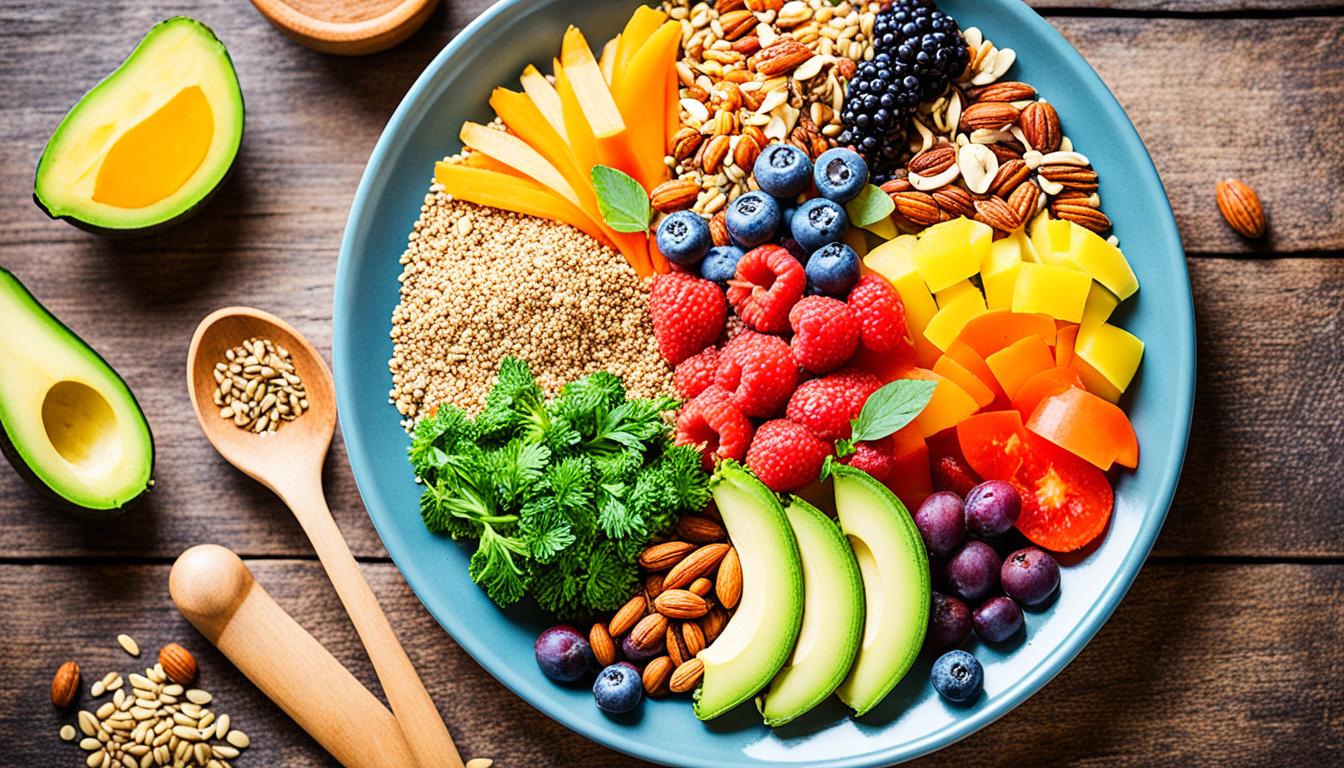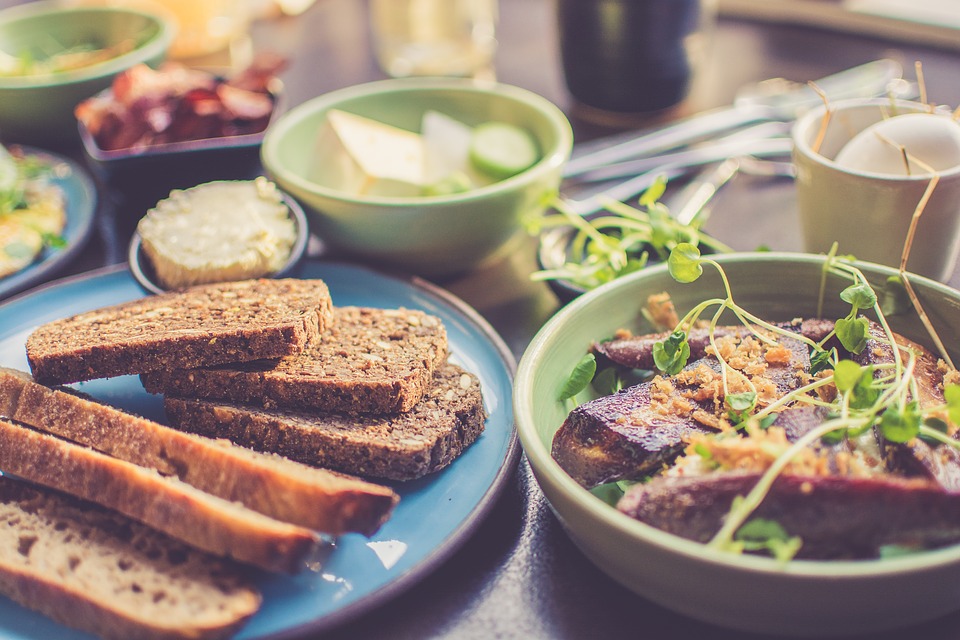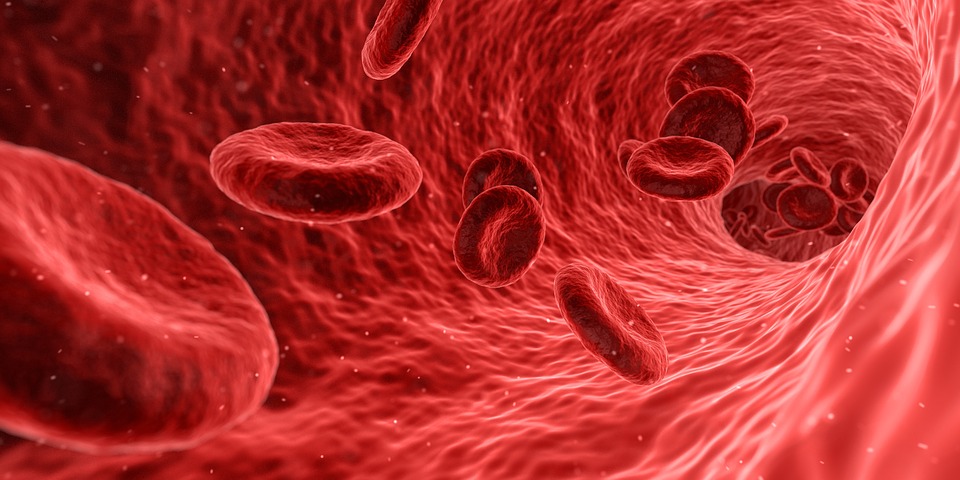Living with PCOS is tough. I know first-hand the struggles like irregular periods and imbalances. So, I’m here to talk about a method that helped me a lot – eating gluten-free.
Although there’s no hard proof, many women, myself included, see great changes by cutting out gluten. Gluten is a protein in wheat, rye, and barley. Going gluten-free reduced my inflammation and made me healthier overall.
Going gluten-free is not just about saying no to certain foods. It’s a whole new eating adventure. You get to find meals that are good for PCOS and try out tasty recipes. So, are you up for exploring this path with me?
Key Takeaways:
- Adopting a gluten-free diet may benefit women with PCOS by reducing inflammation and improving insulin sensitivity.
- Gluten is a protein found in wheat, rye, and barley and may contribute to inflammation in some individuals.
- Following a gluten-free diet involves eliminating gluten-containing foods and choosing alternative grains.
- By focusing on whole, unprocessed foods, you can make healthier choices that support your PCOS management goals.
- Consult with a healthcare professional before making any significant dietary changes to ensure it aligns with your specific needs.
Understanding Gluten and its Effects on the Body
Gluten is a protein family in wheat, rye, and barley. It makes dough stretchy and elastic. It’s in many foods we eat daily. For people with celiac disease, gluten can hurt the small intestine.
Others feel sick from gluten but don’t have this damage. This is called gluten sensitivity. They may have symptoms like celiac disease.
Going gluten-free means avoiding foods with gluten. It also involves eating grains like millet, quinoa, and others instead. These grains are rich in nutrients. They can replace the gluten-filled ones in many recipes.
Avoiding gluten can help those with celiac disease and sensitivity. It might reduce digestive problems, tiredness, and skin issues. If you want to try a gluten-free diet, talk to a doctor. They can make sure you still get all the nutrients you need.
To learn more, check out this comprehensive study on gluten and its effects. It covers celiac disease, gluten sensitivity, and a gluten-free diet.
The Connection between PCOS and Gluten
Women with PCOS often face PCOS symptoms like insulin resistance and inflammation. Though gluten isn’t proven to cause PCOS, studies link it to inflammation and autoimmune disorders.
Many women notice better PCOS symptoms on a gluten-free diet. They swap high-calorie, processed foods for wholesome ones. This shift can help reduce inflammation and manage symptoms.
However, the effects of going gluten-free might differ among those with PCOS. Some see big improvements, but others might not. We need more studies to grasp the gluten-PCOS link fully.

Trying a gluten-free diet might be helpful for managing PCOS, especially since some have positive results. This choice lets individuals pick natural, nutritious foods for better health.
Benefits of a Gluten-free Diet for PCOS
A gluten-free diet can help a lot with PCOS. It leads to better health and helps manage symptoms. By cutting out foods with gluten, you lower inflammation and may see your blood sugar and weight improve. This diet pushes you to choose healthier food and be aware of what you eat.
Less inflammation is a big win for PCOS folks on a gluten-free diet. PCOS often triggers inflammation, but removing gluten can lower these effects. This gives your body a chance to heal better.
Controlling blood sugar is key for managing PCOS. Going gluten-free can help keep your blood sugar steady, which is great for those with insulin issues. Picking gluten-free options over carbs like in processed food helps keep your blood sugar in check and boost your health.
Losing weight can be tough with PCOS. But, a gluten-free diet might help by cutting out foods that increase inflammation and weight. It encourages focusing on healthy meals, which can lead to dropping a few pounds.
To be successful on a gluten-free diet, it’s vital to read labels. Knowing what’s in the food you buy can prevent hidden gluten. This skill helps you shop smarter and find foods that suit your diet.
Gluten-free substitutes for traditional gluten-containing foods
- Gluten-free pasta: swap it with pasta made of brown rice, quinoa, or chickpeas for a yummy change.
- Gluten-free bread: choose from various types like multigrain or seed bread for your sandwiches or toast.
- Gluten-free baked goods: use mixes and recipes to bake muffins, pancakes, and cakes without gluten.
Yet, gluten-free foods may have more sugar and not enough nutrients. To stay healthy, focus on natural, non-processed options. Include lots of fruits, veggies, lean meats, and whole grains in your diet for a well-rounded gluten-free meal plan.
Tips for Going Gluten-free with PCOS
Starting a gluten-free diet might seem hard, but it’s doable with some useful guidance. Here are tips to make your gluten-free journey smoother:
1. Gluten-free Label Reading
Reading labels well is key when you start a gluten-free diet. Watch out for products that clearly say “gluten-free” or have special certifications. Also, get to know about hidden sources of gluten like modified food starch and maltodextrin. This knowledge will aid in steering clear of gluten accidents.
2. Naturally Gluten-free Foods
You’re lucky because many foods don’t have gluten naturally. Enjoy a mix of fruits, veggies, lean meats, and dairy. Beans and legumes are also your friends. They’re good for you, gluten-free, and add taste and variety to your meals.
3. Minimally Processed Foods
Eating less processed food is wise on a gluten-free diet. Processed snacks sometimes hide gluten and have lots of sugar and salt. Focus on eating foods in their most natural state, like fresh fruits and veggies. Whole grains such as quinoa and brown rice are also great. Unprocessed meats round out a healthy, gluten-free diet.

4. Be Mindful of Sugars in Gluten-free Products
Watch out for too much sugar in gluten-free treats. Cookies, cakes, and snacks can be high in added sugars. Always check labels to make smart choices. It’s better to concentrate on wholesome foods. This way, avoiding processed gluten-free items will be easier.
Using these strategies can help you smoothly adapt to a gluten-free way of life with PCOS. And don’t forget, professional advice from a healthcare provider or dietitian is always beneficial.
Gluten-free Diet and Gut Health
Avoiding gluten can help your gut. Gluten, found in wheat, rye, and barley, might cause leaky gut. This could lead to swelling and other belly problems. If you cut out gluten, you might have less swelling and feel better overall.
Eating right is key for a happy gut. Make sure to eat lots of foods high in fiber. Fruits, veggies, and gluten-free grains like quinoa and brown rice are great.
A good diet boosts gut health and fights swelling. Add plenty of fiber-rich foods to your meals. Also, make sure you get all the right nutrients you need.
The Importance of Fiber Intake
Fiber is great for your gut. It makes your poop bigger, helps you go regularly, and fights constipation. Plus, it feeds the friendly bacteria in your stomach, keeping your gut healthy.
It’s simple to get more fiber in a gluten-free diet. Eat more fruits and veggies. Pick whole grains and add beans for protein. Avoid processed foods to get the most fiber health benefits.

- Include a variety of fiber-rich foods in your gluten-free diet
- Choose gluten-free whole grains like quinoa and brown rice
- Add fresh fruits and vegetables to your meals
- Incorporate legumes and beans as protein sources
- Avoid highly processed gluten-free products
Focus on your gut and eat more fiber in your gluten-free diet. This helps your digestion and keeps you healthy all over.
Gluten-free Diet and Thyroid Health
Women with Polycystic Ovary Syndrome (PCOS) have a higher chance of getting autoimmune thyroid diseases like Hashimoto’s thyroiditis. Some studies show going gluten-free might help with thyroid problems. But, we need more research. Changing to a gluten-free diet could improve symptoms in people with Hashimoto’s and similar conditions. But always talk to your doctor first.

- Reduced inflammation
- Improved thyroid function
- Enhanced autoimmune disease management
Experts are still looking into how gluten affects thyroid health. There’s talk that cutting out gluten might help people with Hashimoto’s. This could be because gluten sparks inflammation and immune attacks, making the body work better without it. This might lessen the symptoms of thyroid problems.
- Consult a healthcare professional
- Consider an elimination diet
- Monitor symptoms and thyroid function
Going gluten-free might help some with autoimmune thyroid issues, but it’s not a must for everyone. Always check with a thyroid health expert. They can help figure out the best diet plan. It’s important for managing thyroid and autoimmune conditions.
Personal Experiences and Success Stories with a Gluten-free PCOS Diet
Many women with PCOS have found relief by going gluten-free. They saw big changes in their PCOS symptoms and overall health. Their success stories show the power of a gluten-free diet for managing PCOS.
Weight loss is a common benefit after cutting out gluten. These women not only lost weight but also saw their body compositions improve. They also said goodbye to bloating and body water retention.
Gluten-free diets can also help balance hormones. Women found their menstrual cycles improved, with less pain and irregularity. This restored balance in their reproductive health.
For those with PCOS, inflammation can cause health issues. A gluten-free diet can lower inflammation, reducing symptoms like acne and hair loss. This leads to a better quality of life.
It’s key to remember that everyone is different. What helps one person manage PCOS might not work for someone else. More research is needed on the diet’s direct impact. It’s wise to work with healthcare professionals for a plan tailored to your needs.
Despite some unknowns, many success stories hint that a gluten-free diet could help women with PCOS. Sharing these stories encourages others to look into dietary changes. It might lead to a better life with improved health.

Success Stories in Their Own Words:
- “After switching to a gluten-free diet, I experienced remarkable improvements in my PCOS symptoms. My weight started to steadily decrease, and my energy levels soared. It was incredible to finally find relief from the constant bloating and discomfort. I highly recommend giving it a try!” – Sarah
- “I was skeptical at first, but going gluten-free has been a game-changer for me. Not only did I lose weight, but my periods became regular again, and my skin cleared up significantly. I never thought I could feel this good with PCOS!” – Emily
- “I had been struggling with PCOS symptoms for years, but since adopting a gluten-free lifestyle, my life has transformed. My hair started growing back, my mood swings disappeared, and I finally have the energy to keep up with my two young children. It’s been a true blessing.” – Lisa
These testimonies highlight the importance of personalized diet choices in managing PCOS. By combining their insights with professional advice, women can find a path suited to their needs. This can lead to improved health and well-being.
Conclusion
There isn’t solid proof that links gluten to PCOS symptoms. But many women feel better on a gluten-free diet. This means that managing PCOS by avoiding gluten could be worth a try for some. Yet, always base your diet choices on what’s best for you. Be sure to talk to your doctor first.
Each person’s PCOS journey is different. What helps one few may not help another. It’s key to eat well and pick habits that are good for your personal health. This might include cutting out gluten. But it also means doing things like getting enough exercise, managing stress, and sleeping well.
Thinking of going gluten-free to help with your PCOS? Start by chatting with a healthcare expert. They can give you advice tailored to you, sort out any worries, and make a full plan for your needs and goals.
Taking care of your PCOS the natural way is a process. It’s about testing what lifestyle choices work best for you. Your goal is to shape a life that helps you deal with PCOS while feeling and being your best.
Learn more about PCOS management through an individualized approach














